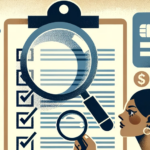Introduction
Managing debt is a critical aspect of financial well-being. Whether it’s a mortgage, student loan, or credit card debt, how you handle your obligations can significantly impact your financial health and future. Mismanaged debt can lead to financial stress, poor credit scores, and even bankruptcy. Conversely, effective debt management can pave the way to financial freedom, providing peace of mind and a solid foundation for future financial growth.
The purpose of this blog post is to provide a comprehensive guide to debt management. We’ll explore strategies for managing debt, resources to assist you on your journey, and tips for overcoming the inevitable challenges you’ll encounter along the way. Our goal is to equip you with the knowledge and tools necessary to navigate your debt journey successfully.
Remember, managing debt is not just about paying off what you owe. It’s about understanding how to use debt wisely, how to prioritize repayments, and how to avoid unnecessary debt in the future. Let’s dive in!
Understanding Debt Management
Debt management is the process of handling, paying off, and ultimately reducing or eliminating personal debt. It’s a crucial part of achieving financial freedom, as it directly impacts your ability to save, invest, and plan for the future. Effective debt management involves understanding the different types of debt, knowing how to prioritize repayments, and using strategies to reduce the overall debt burden.
There are different types of debt, each with its own implications. Consumer debt includes credit card debt, auto loans, and other personal loans. Student loans are another significant category, especially for younger adults. Mortgages, or home loans, are usually the largest debt obligation for most households. Understanding the terms, interest rates, and repayment schedules of each type of debt is crucial in managing them effectively.
The debt-to-income ratio is a key concept in debt management. It’s a percentage that compares your monthly debt payments to your monthly gross income. Lenders use this ratio to assess your ability to manage payments and repay loans. A lower debt-to-income ratio indicates a better balance between debt and income, which is favorable for your financial health.
Strategies for Effective Debt Management
There are several strategies for effective debt management. One popular approach is to prioritize debt repayment using the snowball or avalanche methods. The snowball method involves paying off debts from smallest to largest, regardless of interest rate. This approach can provide quick wins and help maintain motivation. The avalanche method, on the other hand, focuses on paying off debts with the highest interest rates first, which can save more money over time.
Debt consolidation is another strategy. This involves combining multiple debts into a single loan with a lower interest rate. This can simplify repayments and potentially save money on interest. However, it’s important to consider the potential downsides, such as longer repayment terms or the temptation to accumulate more debt.
Negotiating with creditors can also be an effective strategy. This can involve requesting lower interest rates, waiving late fees, or even settling for a lower total repayment amount. It’s important to approach these negotiations with a clear plan and to be prepared for potential rejection.
| Strategy | Pros | Cons |
|---|---|---|
| Snowball Method | Quick wins, motivational | May pay more interest over time |
| Avalanche Method | Saves more money over time | May take longer to see progress |
| Debt Consolidation | Simplifies repayments, potentially lower interest | Potential for longer repayment terms, temptation to accumulate more debt |
Resources for Debt Management
There are numerous resources available to assist with debt management. Online tools and apps can help track and manage debt, create budgets, and monitor progress towards debt repayment goals. Some popular options include Mint, YNAB (You Need a Budget), and Debt Payoff Planner.
Credit counseling and debt management programs can also be beneficial. These services provide professional guidance on managing debt, creating budgets, and making informed financial decisions. They can also negotiate with creditors on your behalf to lower interest rates or waive fees.
Understanding your credit report is another important aspect of debt management. Your credit report contains detailed information about your credit history, including your debts and payment history. You can access your credit report for free once a year from each of the three major credit bureaus (Experian, Equifax, and TransUnion) through AnnualCreditReport.com.
Navigating Challenges in Debt Management
Managing debt is not without its challenges. Financial setbacks, unexpected expenses, and the stress of dealing with debt can all pose significant obstacles. However, with the right strategies and mindset, these challenges can be overcome.
One key strategy is to have a plan for dealing with financial setbacks. This might involve building an emergency fund, adjusting your budget, or seeking professional financial advice. It’s also important to have a plan for dealing with unexpected expenses, such as car repairs or medical bills. This might involve setting aside a certain amount each month for unexpected costs.
Maintaining a positive mindset is also crucial. Dealing with debt can be stressful and overwhelming, but it’s important to stay focused on your long-term goals. Seeking support from trusted friends, family members, or financial professionals can also be beneficial.
Long-Term Debt Management and Financial Freedom
Effective debt management is not just about paying off current debts, but also about planning for the future. Building an emergency fund, saving for retirement, and investing for the future are all important aspects of long-term financial health.
Strategies for avoiding future debt are also crucial. This might involve living within your means, using credit wisely, and making informed financial decisions. Ongoing financial education is also important, as it can provide the knowledge and skills needed to manage money effectively and avoid unnecessary debt.
Finally, it’s important to celebrate your successes along the way. Whether it’s paying off a credit card, reducing your debt-to-income ratio, or reaching a savings goal, every milestone is worth celebrating. Sharing your success stories can also inspire others on their own debt management journey.
Conclusion
In conclusion, managing debt is a crucial aspect of financial well-being. By understanding the different types of debt, using effective repayment strategies, and utilizing available resources, you can successfully navigate your debt journey and achieve financial freedom.
Remember, the journey to financial freedom is not a sprint, but a marathon. It requires patience, discipline, and perseverance. But with the right strategies and mindset, you can overcome the challenges and achieve your financial goals.
We encourage you to take action and implement the strategies and resources provided in this guide. Whether it’s creating a budget, starting an emergency fund, or negotiating with creditors, every step you take brings you closer to financial freedom. Subscribe to our blog for more tips and resources on managing debt and achieving financial freedom.
FAQs
What is debt management?
Debt management is the process of handling, paying off, and ultimately reducing or eliminating personal debt. It’s a crucial part of achieving financial freedom, as it directly impacts your ability to save, invest, and plan for the future.
What are some strategies for effective debt management?
Some strategies for effective debt management include prioritizing debt repayment using the snowball or avalanche methods, consolidating debts, negotiating with creditors, and creating a budget.
What resources are available for debt management?
Resources for debt management include online tools and apps for tracking and managing debt, credit counseling and debt management programs, and free access to your credit report.
How can I overcome challenges in debt management?
Challenges in debt management can be overcome by having a plan for dealing with financial setbacks, maintaining a positive mindset, and seeking support from trusted individuals or professionals.
How can I achieve long-term financial freedom?
Long-term financial freedom can be achieved by effectively managing current debts, building an emergency fund, saving for the future, avoiding unnecessary debt, and celebrating your successes along the way.



